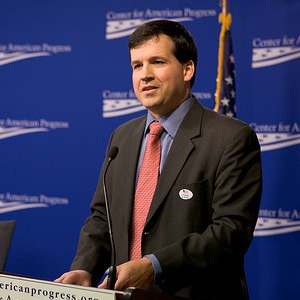Obama, Upset By Latin America Criticism, Replaces Dan Restrepo
 By Tom Hayden, Voxxi
By Tom Hayden, Voxxi
“He was upset by the trip,” according to a Democratic insider who follows Latin American affairs, “and so they got rid of Restepo.” Central and Latin American leaders openly challenged Obama at the Summit, including his Colombian host, president Juan Manuel Santos. Led by Brazil and Ecuador, the summit leaders also indicated that they would not attend future meetings unless Cuba is seated.
More than ever, Latin American governments appear to be showing muscle as they realize that returns on dialogue with the U.S. are scant. By contrast, when Obama became president, Latin America—including the Cubans and Venezuelans—was between hopeful and exuberant about prospects for a new Good Neighbor policy.
Those days are over for now. Challenges from democratically elected regimes in the region are posing significant obstacles to traditional U.S. hegemony. Ten years ago, Latin America rejected the U.S. plan for a continental free-trade zone with proposed headquarters in Miami. Since then, several Latin American governments have developed autonomous regional institutions such as Mercosur, led by Brazil and including Argentina, Uruguay and Paraguay. This week Mercosur admitted Venezuela, the target of a virtual U.S. Cold War. Paraguay’s conservative Senate had blocked Venezuela’s admission until the recent coup in Paraguay, which led to its suspension of Mercosur.
President Barack Obama sits in front of a large video screen displaying an image of a U.S. national flag during a three-way conversation with Brazil’s President Dilma Rousseff and Colombia’s President Juan Manuel Santos, not pictured, at the CEO Summit of the Americas in Cartagena, Colombia, Saturday April 14, 2012. (AP Photo/Carolyn Kaster)
Latin America’s people and governments have rejected U.S. policies of blockade and de facto regime change in Cuba. They additionally oppose the 2009 coup in Honduras, widely seen as U.S.-supported.
The same forces are moving away from U.S.-sponsored military solutions to the drugs problem, and toward experiments in legalization. In an unusual change of the dynamics, many Mexicans led by the poet Javier Sicilia will be caravanning across the United States to the White House this fall, bringing their opposition to the drug war to its source in the DEA.
The result is an Obama administration, originally supportive of dialogue and diplomacy, defensive and isolated on key issues from democratically elected governments to the South.
The replacement of Dan Restrepo by career diplomat Ricardo Zuniga, a Honduran long involved in U.S. Cuban affairs, does not mean any change in policy. With the House under Republican control, Latin American issues are under the purview of Rep. Ileana Ros-Lehtinen, a Miami Cuban extremist who has called for killing Fidel Castro and given support to the most extreme elements in her community.
If Obama gets elected a second term, it means an opportunity. He understands now that it is against the U.S. national interest to pursue drug wars and the obsolete Cuba policy when there are significant costs.
This Americas Program article was first published in Voxxi.
Tom Hayden is founder and Director of the Peace and Justice Resource Center in Culver City, CA., which originally produced this article. He has over fifty years of activism, politics and writing and continues to be a leading voice for peace, economic justice, saving the environment and reforming politics through a more participatory democracy.
[Photo by Ralph Alswang/Center for American Progress]
